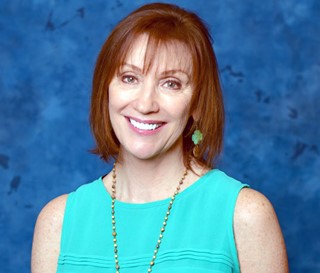Dementia Bytes Virtual Classes Offer a Space for Questions and Expert Answers

Dementia Program Director Dr. Maribeth Gallagher, DNP, PMHNP-BC, FAAN
Every week Hospice of the Valley's Dementia Program Director Dr. Maribeth Gallagher offers up her expertise to anyone who has a question about dementia. She is passionate about providing these kind of open question and answer sessions because they truly help families facing challenges they never anticipated.
How is this session different than a support group?
Like a support group, it is a warm, uplifting environment. However, we go a bit deeper. The main purpose of these sessions is to provide up-to-date, evidence-based information and practical tools that help attendees gain new insights and develop feasible ways to approach the issues they encounter along the caregiving journey.
What kind of questions do people ask you in the meeting?
We discuss whatever dementia-related topics organically arise in the group that day. We may explore different types of dementia and how changes in the brain impact thinking, functioning and behaviors. I often am asked about very specific topics related to particular challenges that each caregiver is facing. Sometimes the most important topic is the well-being of the dementia care partner. We discuss the complex emotions of dementia caregiving, along with the financial and social strains. Dementia Bytes provides a space where people can ask questions about whatever is on their hearts and minds. It’s a gathering where folks can feel understood and supported as they confidentially share things they can’t typically discuss with those who have never had these experiences.
What are some specific examples?
Oftentimes, discussion follows along the lines of, “What I'm trying to do with my person living with dementia is not working. I love them and really want to help, but what I’m doing seems to be making the situation worse. Is anyone else having this challenge? Is there another way to approach this?” Another common question is, “How do I communicate effectively with a person who is increasingly struggling with verbal language?" Or, “My dad gets so angry when I try to offer help. How do I keep him safe and provide care in a way that doesn’t trigger his fear and anger?” As best we can, we offer guidance and share evidence-based techniques.
This is such an important resource for people. We've seen how people always approach you with questions every time you give a dementia presentation.
Yes! Families receive a diagnosis from a doctor and after leaving the office, a litany of questions emerge because there are so many implications of a dementia diagnosis. The folks who attend the groups are trying so hard to be skillful and compassionate care partners, but they usually have NO previous education to help them plan for the future and meet the numerous issues commonly encountered. We know there is a growing need for education and support, so we created these spaces for people to come and ask away. And even if they don't have questions, even if they don't want to talk, all are invited simply to be in the presence of others and recognize, I am not alone and I don't have to figure this out alone. We want people to know that we are available to offer support every step of the way.
We can all see the credentials after your name and that you are highly educated to answer dementia-related questions, but will you share more about your personal connection?
My commitment to improving dementia care was profoundly shaped by my personal experience as a family caregiver, walking alongside a loved one through the full journey of dementia—from diagnosis to death. It was a transformative experience. Perhaps dementia care partners sense that I speak from the lived experience in addition to the current evidence-based knowledge. I’ve had the privilege of serving in this professional role for over 20 years now. My patients and their care partners have truly been some of my greatest teachers. My intention is to honor and generously share all they have taught me so that together we can take dementia out of the shadows and galvanize efforts to help every person living with dementia and their care partners to LIVE WELL.
